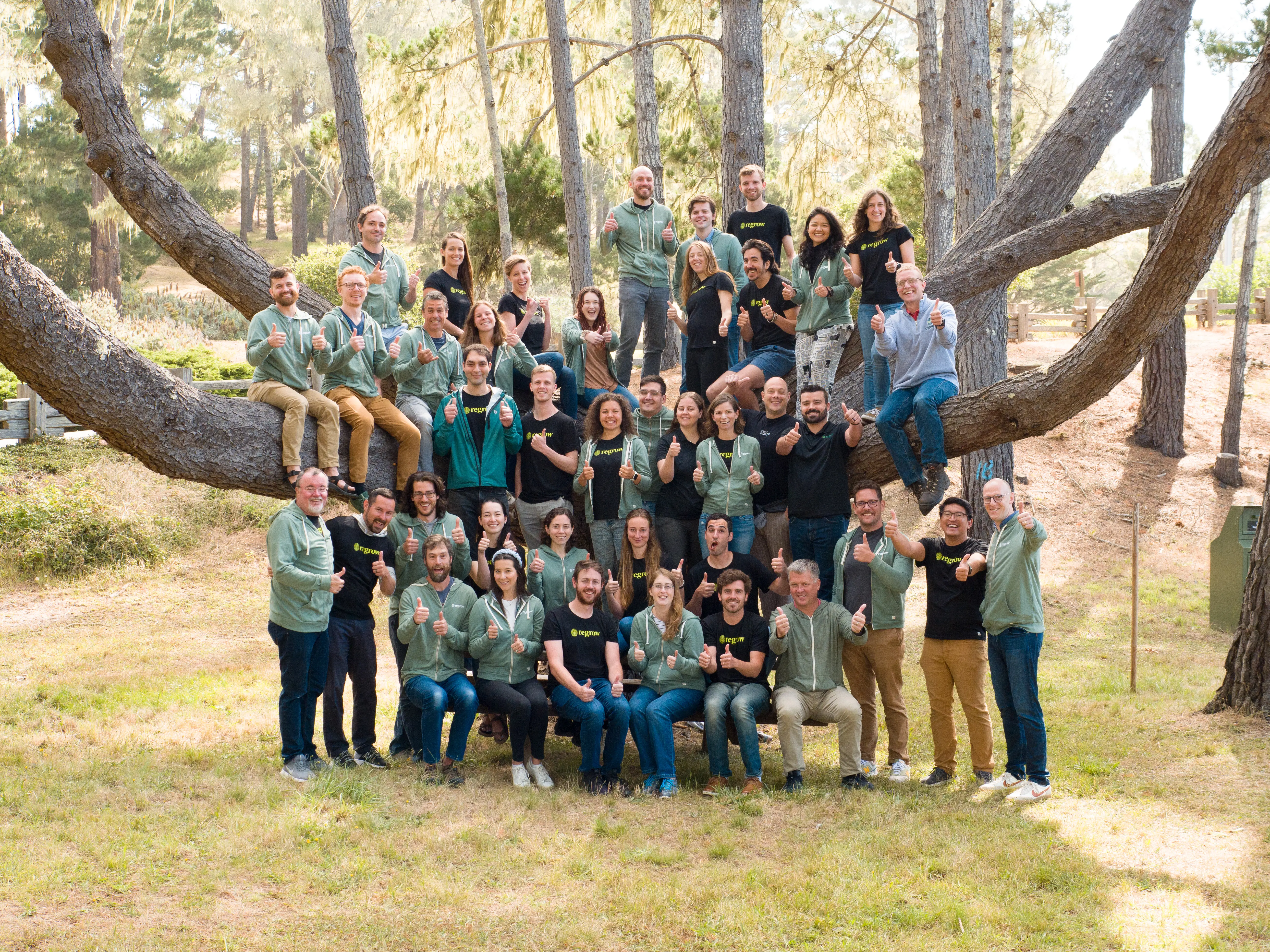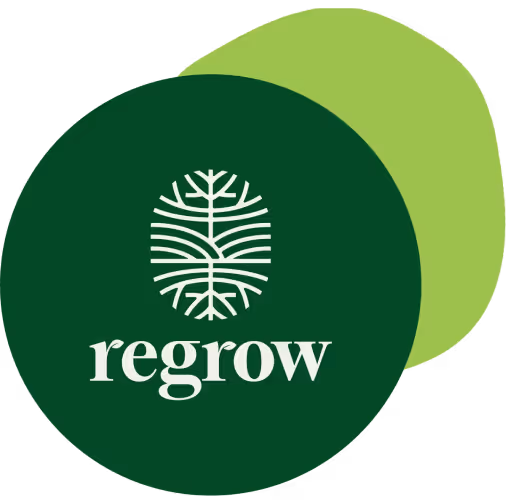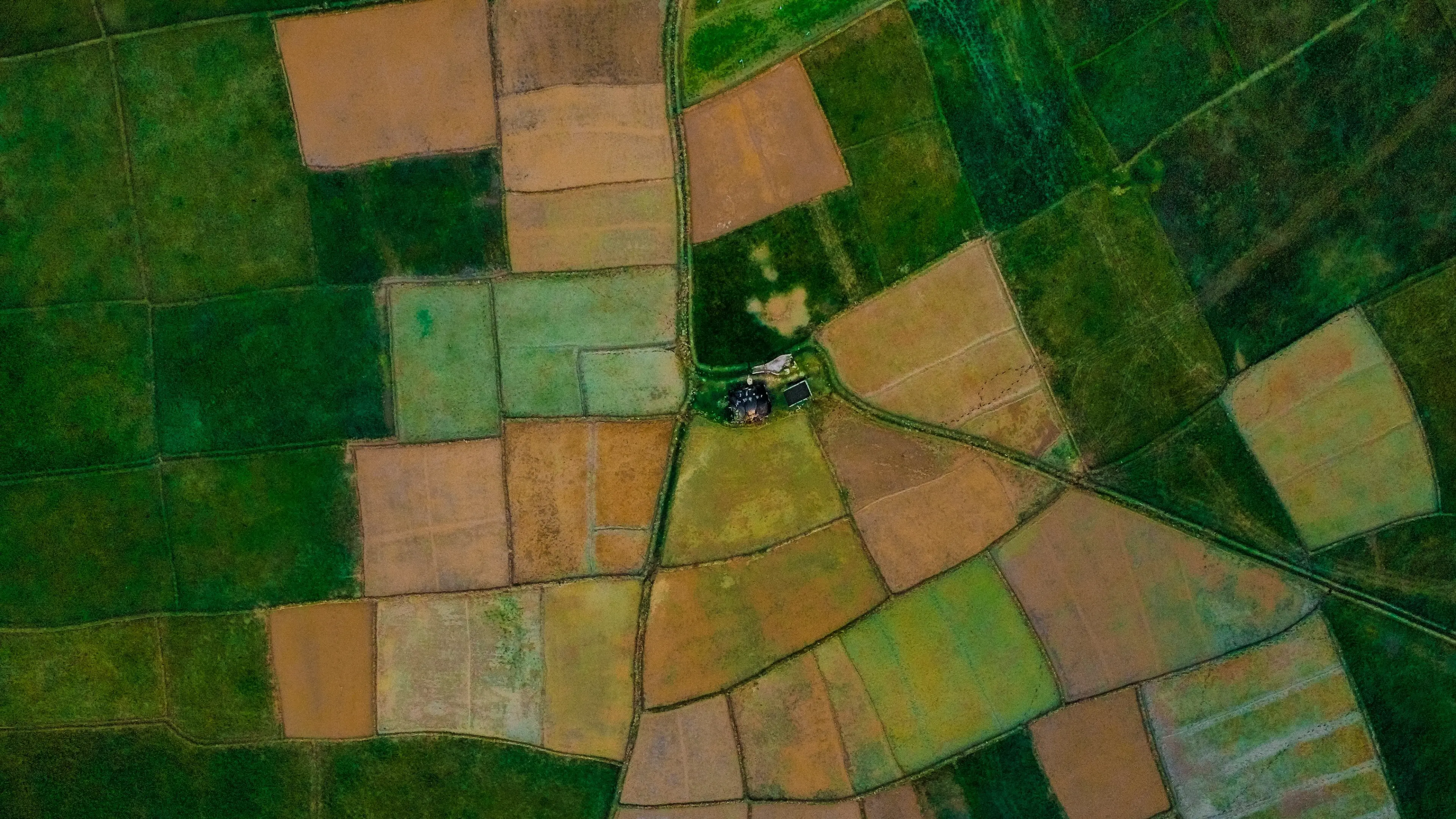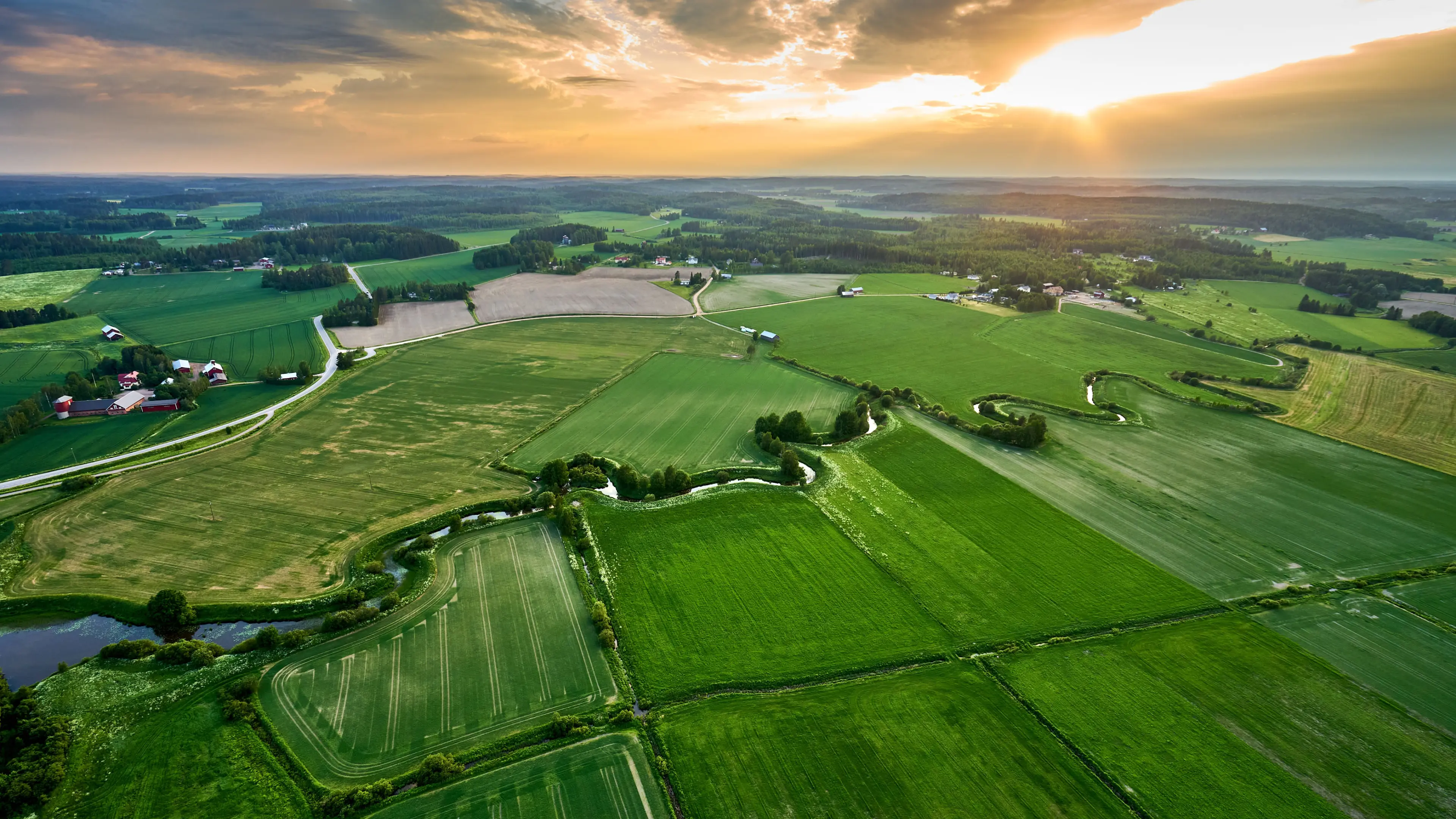Happy Earth Day! It is an exciting and turbulent time to be working in the climate space. On a daily basis, we see both inspiring and concerning updates about our climate progress or lack thereof. But Earth Day is about hope for the future, and we encourage anyone that is reading this post to take a moment to reflect on all the work they are doing that brings us closer to the future we hope to live in.
To celebrate Earth Day at Regrow, we asked our team members a series of questions to better understand how they got started working in this industry, how their specific work drives environmental sustainability, and how they recommend others get involved in climate action. We believe it’s important to periodically take a step back and revisit why we chose to pursue this work and realign our hopes for the future.
We spoke to John Shriver, Director of Data Science; Gayathri Gopalakrishnan, Director of Environmental Science; Devon Long, General Manager of Australia and New Zealand; and Renato Rodrigues, Head of Region for Latin America. Each employee had a unique perspective about their work in climate change — but, as you’ll notice, they’re all driven by a similar passion for the work they do.
Watch their interviews here, or read a recap of the conversation below:
How did you get started working in AgTech?
John: When I was in graduate school at the University of Michigan School of Natural Resources, I learned about all of the incredible ways you can measure environmental outcomes. When I graduated, I wanted to make an impact on the ground and really help growers adopt best practices in the way they were farming. I joined a startup, FarmLogs, where I was their 12th employee, and we built tools for growers to be able to better manage their land. The first project I worked on was helping farmers use satellite imagery to look for pests and to monitor their yields. In that job, I was most proud of building a nitrogen support tool and crop model to really help growers visualize the impact of fertilizing and learn about the effects on their local watersheds.
Gayathri: I’ve always been interested in the environment, climate change, and how our actions can impact and help. This led me down the road to getting a PhD in environmental engineering, where I was looking at how plants can clean up the environment, and that work led into looking at how plants can improve carbon sequestration rates and improve water quality. I eventually started learning about how remote sensing, machine learning, and data science can help inform our understanding of these environmental processes. So it’s a journey that started within science and research and eventually wandered into technology and working at startups like Regrow.
I am passionate about using technology not just for clicks, but to actually make an impact in the real world.
Devon: I got started working in AgTech, frankly, by accident! I started my career in technology consulting, and like most technology consultants, I ended up on a project I had no idea about and that project was how to leverage technology to improve the value of Australian agricultural exports. Once I got into that, the AgTech space just stood out to me as the most interesting thing available to be doing. It’s challenging, it’s complex, it has real impact, and I decided that was it! That’s what I wanted to be doing from now on.
Renato: It has definitely been a long path! I worked for two years as a researcher at the UN Development Program in Brazil, and then 12 years as a researcher for the Brazilian government, doing ag work. In parallel to that, I was the president of the board of an NGO. I also have a technical background, with a Master’s degree and PhD in Environmental Geochemistry and Climate Change. I also decided to do an MBA to learn more about management, and this opened up a brand new world for me, learning about innovation and startups, which was a great fit with my technical background. I then decided to apply to an international program called Nuffield International, and on that application they asked a simple question: where do you want to be in five years? This got me really deeply thinking about what I was most passionate about, and brought me to the Japanese concept of Ikigai, which, for those that are unfamiliar, is the idea that your life is given meaning and purpose by finding a specific passion. This passion is informed by what you are good at, what you love, what the world needs, and what you can be paid for.
It was a long journey for me to find my Ikigai, but I definitely believe that I have found it working here at Regrow.
How is your work driving environmental sustainability?
John: My work is based on the premise that you can’t change what you can’t measure. And so what I love about satellite imagery is that it gives us this incredible view of the landscape, and we can really measure and quantify the impact of human activity on the natural world. I think the other thing that I really love is that once we have that big picture, we can really start to imagine what we want the world to look like in the future and then hold ourselves accountable. If we can measure something in the past, we can also then, in real time, see what our impact is. So as we go through this journey, I love that my work at Regrow is to help build out that toolkit to establish a baseline of where we’re starting, and then also leave a record behind of our efforts and our successes.
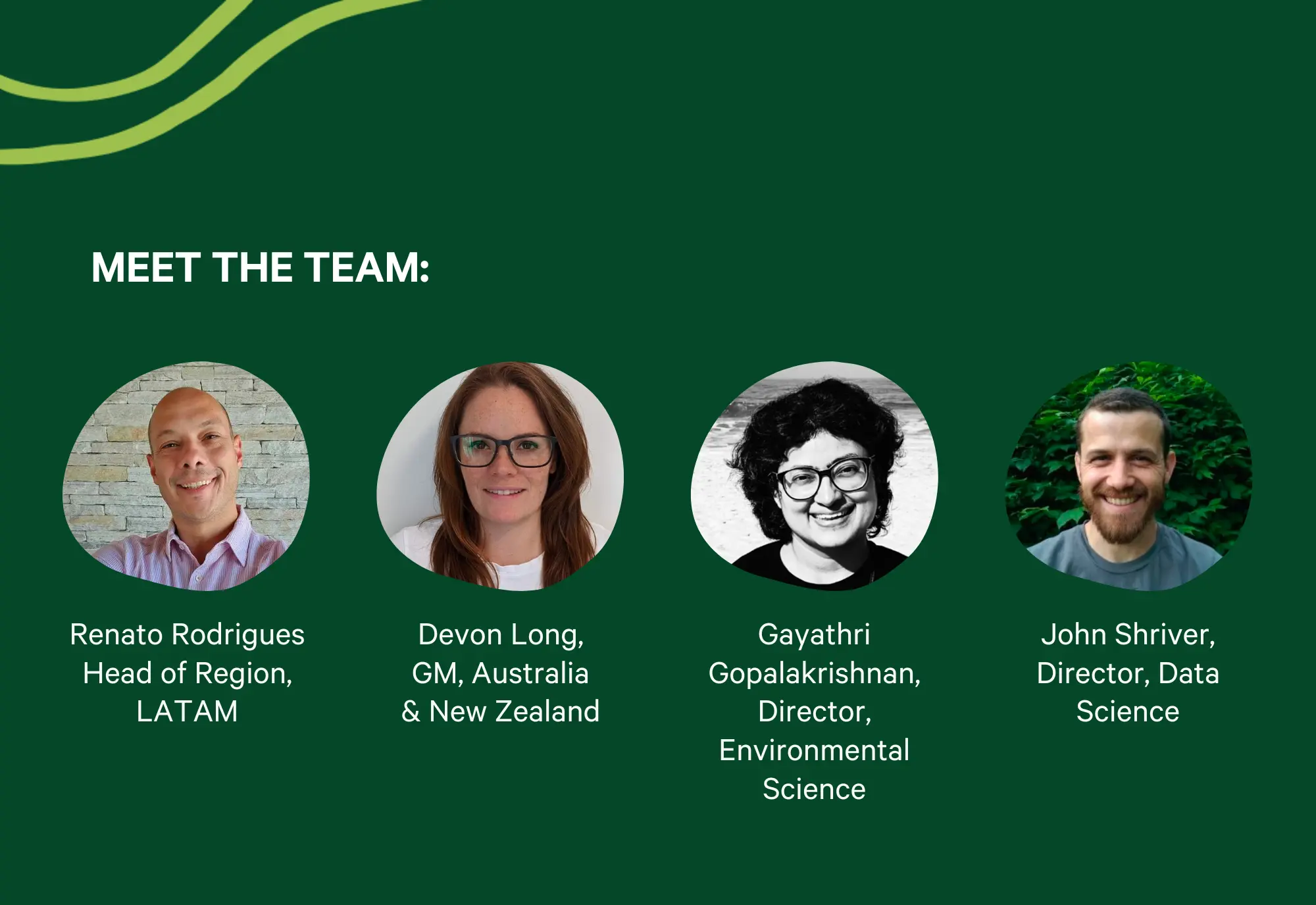
Gayathri: When you think about what I do at Regrow, and our Environmental Science team more generally, we are really trying to understand how we can act locally to have an impact globally, and being able to measure these outcomes. So the fun thing about doing work here is that we are not just doing science for the sake of science, but really trying to produce something that has a direct impact.
Devon: I work primarily with our customers, so I try to understand their goals and strategies and how they want to operate in the new emerging net-zero world. So very practically, I help these businesses build a tangible business case for transitioning to regenerative agriculture. I think sometimes it’s a bit awkward to think of environmental stewardship as a business decision.
We can’t expect businesses to act like NGOs, and really if we want to make a difference and move the dial, it's industry that’s going to do it. So that’s really my role, and I guess where my work focuses, and I couldn't be happier doing it!
Renato: I have now been working either directly or indirectly at the intersection between food and sustainability in Brazil for almost 20 years, and my work at Regrow is a great opportunity to build upon this foundation. During those 20 years, Brazil has come a long way. In building out the sustainability movement here, there are opportunities to improve not just the environment, but also the livelihoods of farmers by reducing social inequality, and that continues to inspire me.
How do you recommend others get involved to make meaningful change?
John: I think the first step is to just look at where you are, where you’re already engaged and involved. Do you have any influence or leverage in your community, at your work, at your kid’s school? Can you advocate for the inclusion of sustainability metrics in operational choices?
But going beyond that, I think one of the things I’ve found to be most impactful is talking with my kids about the world we live in, and exploring the world around us.
It’s important to help build that love for nature and the natural world, and knowing what it means to invest in the place that we are in. I’d really encourage people to look around where you are today, and just understand how to care for and improve it!
Gayathri: This is one of the challenges in our current time. It feels like these problems are so big that there's not a lot you can do as an individual to impact it. But what I found is that being able to have local impact and working with people in other communities is useful. Whether it's working with local farmer organizations to help them solve climate issues or to help them become more resilient economically, or whether it's working with cities and municipalities to help understand their water systems. Maybe it's an individual that's doing something as simple as working in a community garden or helping to clean up their local stream. It could be as simple as looking at what you consume, and how you can improve what you do in your household or in your community. That’s what I found makes the most impact.
Devon: I think there are a few options here. As a consumer, you can pay attention to where your food comes from. Keep brands accountable to their progress, and frankly, reward those that are making meaningful investment to decarbonize their supply chains. If you’re a passionate individual, you could always look to get into the space as well. Regrow and other climate-forward companies are trying to solve some really difficult problems, and to do that, we need the biggest, brightest and best brains to do so. So take a look at our job openings and see if there’s an opportunity to turn your passion into your career!
Renato: I think that a common mistake and misconception is that we think that only a few people can do big things in the climate space, and that those will be the only things that help change the world. I believe that we all have an opportunity to do much smaller things, at home, in your school or city. We can all strive to do our best under the conditions that we have.
We’ve taken inspiration from our employees’ passion, from their drive to change the future of our food systems, and from their commitment to their personal missions and our shared one.
Our team members span a wide range of disciplines and backgrounds, but they have one thing in common: an undying commitment to the future of our planet.
We hope you take some time today to reflect on your passions, your aspirations, and your impact on the planet. If you decide that your passion lies in resilient agriculture, check out our careers page.
